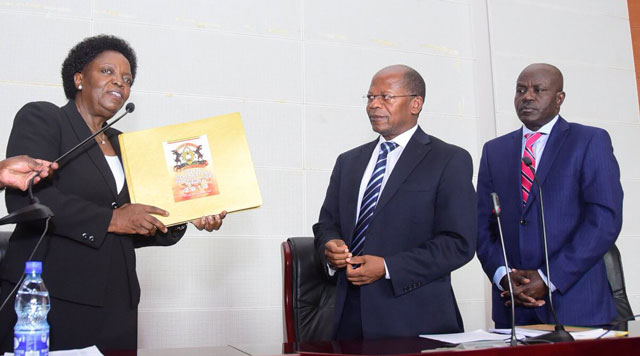
Uganda’s education system
The Ugandan education system follows a 7-4-2-3 pattern; seven years of primary education, followed by four years of lower secondary or Ordinary Level, two years of upper secondary or Advanced Level and a further three to five years of tertiary education.
Academic programmes in tertiary institutions are grouped into universities, national teachers’ colleges, colleges of commerce and technology, and other tertiary institutions.
Degree programmes are offered only in universities where students complete a 3–5 year programme with minimum standards. Colleges and other tertiary institutions offer certificates and diplomas, and their programmes usually last 2–3 years.
Currently, there are at least 32 licensed public and private universities, ten national teachers’ colleges, 13 colleges of commerce, seven technical colleges, one forestry college, two cooperative colleges, three hotel and tourism institutes, 12 management institutes, ten health and medical schools, three agricultural and animal husbandry colleges, one fishery training institute, one meteorological school, and four theological colleges.
The 2016/17 Education and Sports sector annual performance report noted last year that the total number of primary school enrollment stood at 8,655,924 pupils while there were up to 1,457,277 students pursuing secondary education (both O-Level and A-Level). There is less than 100,000 in Uganda’s universities and another 110,000 in Uganda’s business, vocational and polytechnic colleges.
So is it true that students are increasingly pursuing certificate and diploma courses at college immediately after clearing their O-Level?
Sebastian Kairania heads Iganga Technical Institute in eastern Uganda. He told The Independent that it is possible the numbers are increasing in training institutions like his around the country.
He says since the government improved the facilities at the institute, the numbers have shot up to about 600 students, which is twice the population of the institute, five years ago.
Kairania told The Independent that he supports the idea of students branching into college after S.4. He has already persuaded his daughter to go and study a hospitality course in Jinja after she cleared her O-Level.
“I told her that she should not waste her time (continuing with A-Level),” he said, “It is better you go through college and upgrade to diploma or degree level after you have gained a skill.”
Kairania says university education or what he calls “the degree farce” was popularized in his time because it was prestigious to get white collar jobs back then when they were readily available.
“These days, these kinds of jobs are very rare,” he says, “Young people can only get these jobs after those holding them have either died or retired,” Kairania added with a chuckle.
He told The Independent that he is in support of technical and vocational training because he thinks it can help in correcting Uganda’s distorted pyramid of skilled labour.
“A doctor is supposed to work with probably a dozen nurses while an engineer is supposed to be surrounded by diploma and certificate-holding technicians but these are so few in the country,” he says.
“This is because the institutions that train these middle-level workers are far too few and even the intake is quite low.”
He says more awareness is needed to popularize business, technical, vocational education and training programmes around Uganda.
Kairania says most Ugandans are still stuck with the old system where students are expected to study from primary, secondary and then move onto university yet at the end of the day, these students get qualifications but with no skills.
 The Independent Uganda: You get the Truth we Pay the Price
The Independent Uganda: You get the Truth we Pay the Price


